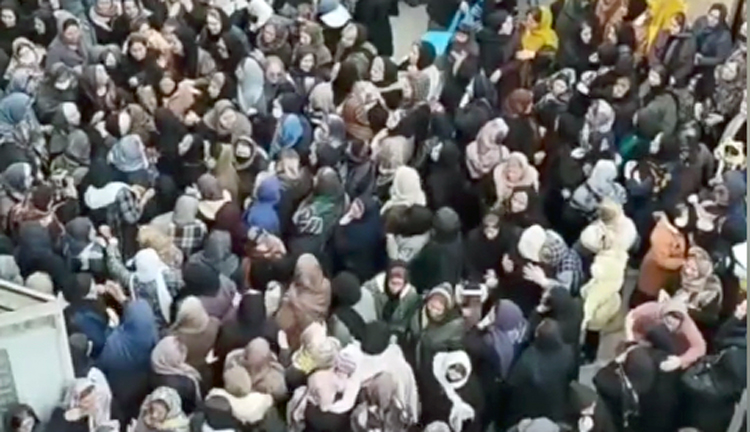The streets were deserted as shopkeepers and working people held a one-day strike in over a dozen cities in the Kurdish region of Iran Jan. 30. They were protesting the execution of four Kurdish men the day before, accused by the Iranian regime of being “terrorists” and spies for Israel.
The four “confessed” after being tortured and denied contact with their families. They were sentenced to death last September in a secret trial. They had been supporters of Komala, a party banned by the government that calls for autonomy for Iran’s Kurdish minority. Above, protest vigil in Kurdish region after the executions.
Sixty-one female political prisoners in Evin prison in Tehran initiated a hunger strike when two other opponents of the regime were executed the week before.
More than 830 people were executed in Iran in 2023, disproportionately Kurds, Baluch, Arabs and other oppressed nationalities. Most were convicted of drug violations or murder. Nine people associated with the mass Women, Life, Freedom protests, which broke out in 2022, have been executed.
At Qezel Hesar Prison in Karaj, where many of the executions are carried out, political and “common” prisoners began weekly hunger strikes every Tuesday. “Some of us are innocent, while others have erred due to misfortune and hardships,” they said in a statement. “We have all been denied a fair trial and legal representation.”
Sentiment for abolishing the death penalty is growing. Seventeen student organizations, the Writers Association of Iran, trade unions and retiree associations have all called for banning executions and freeing political prisoners.
The reactionary bourgeois clerical regime and its military adventures abroad are more unpopular than ever. Every week there are protests or strikes by oil workers, steelworkers, nurses, farmers, or municipal workers. Opposition to the regime’s backing of Hamas in Gaza is widespread among workers.
“The direct goal” of the death penalty, noted a statement by nearly a dozen union, retiree and women’s organizations, “is to intimidate us the people.”
Repeating one of the slogans of a successful strike by steelworkers in Ahvaz this year, the statement concluded, “Neither threats, nor prison, are effective.” They added, “We will not back down.”


